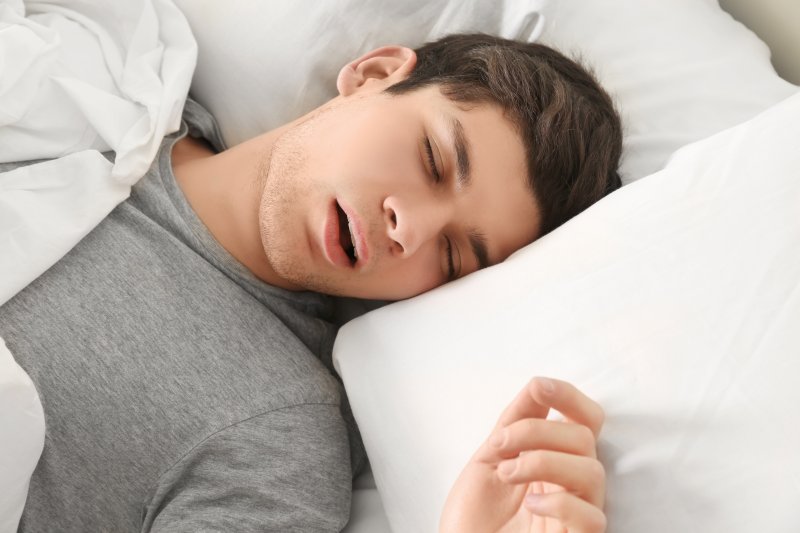Have you been struggling to get a sufficient amount of rest due to sleep apnea? Do you also suffer from jaw pain or discomfort due to TMJ? While these two problems may be distinct, it may surprise you to discover that they’re closely connected. Fortunately, both of them can be addressed with the same solution: oral appliance therapy. Keep reading to learn about the link between sleep apnea and TMJ, and how your dentist can help you.
The Link Between Sleep Apnea & TMJ
When it comes to these two conditions, you might begin to wonder whether TMJ results in sleep apnea or if it’s the other way around. What typically happens, however, is that when you experience the latter, specifically obstructive sleep apnea (OSA), your brain will need to alert your body to breathe. When this occurs, you might start to shift your jaw in a way that can cause your mouth to part and open your airway. Should this happen several times during your sleep, the constant motion can lead the temporomandibular joint (TMJ) to grow stressed and tense. This disorder can make it incredibly difficult to feel rested, as the discomfort can end up keeping you up for too long.
How Can Oral Appliances Help?
Even if you’re experiencing both sleep apnea and TMJ, the good news is that you can get them treated with similar solutions from a skilled and trusted dentist. After consulting your dental professional, they can recommend you for oral appliance therapy, which is the common treatment designed to both improve jaw positioning and your ability to breathe easily at night. These devices are custom-made to fit your mouth perfectly and come with several benefits. Not only can they prevent wear and tear from teeth grinding and clenching, but they can also position your jaw to help relax your TMJs and open the airway.
Over time, you may begin to see a difference when waking up and how your jaw feels when opening and closing your mouth. In many cases, patients feel significantly more well-rested and they don’t feel discomfort or pain in their TMJ. This means you’ll be able to eat your favorite foods comfortably and go about your day without feeling bouts of fatigue.
So, if you’re struggling with sleep apnea and TMJ, don’t hesitate to consult your dentist for help. They may provide you with the necessary oral appliance therapy that can effectively boost your overall well-being!
About the Author
Dr. Eric Buck graduated from The Ohio State University College of Dentistry to earn his dental doctorate. He routinely seeks advanced training to refine his skills and is a member of several organizations like the Columbus Dental Society and the American Academy of Dental Sleep Medicine. He offers a wide variety of first-rate services, including sleep apnea therapy and TMJ treatment. If you need help sleeping better or with jaw discomfort, visit his website or call him at 614-792-1800.

